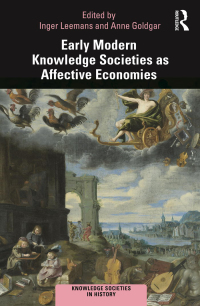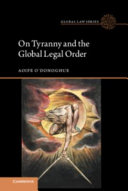Buy Early Modern Knowledge Societies as Affective Economies 1st Edition PDF ebook by author Inger Leemans; Anne Goldgar – published by Routledge in 2021 and save up to 80% compared to the print version of this textbook. With PDF version of this textbook, not only save you money, you can also highlight, add text, underline add post-it notes, bookmarks to pages, instantly search for the major terms or chapter titles, etc.
You can search our site for other versions of the Early Modern Knowledge Societies as Affective Economies 1st Edition PDF ebook. You can also search for others PDF ebooks from publisher Routledge, as well as from your favorite authors. We have thousands of online textbooks and course materials (mostly in PDF) that you can download immediately after purchase.
Note: e-textBooks do not come with access codes, CDs/DVDs, workbooks, and other supplemental items.
eBook Details:
Full title: Early Modern Knowledge Societies as Affective Economies 1st Edition
Edition: 1st
Copyright year: 2021
Publisher: Routledge
Author: Inger Leemans; Anne Goldgar
ISBN: 9780429270222
Format: PDF
Description of Early Modern Knowledge Societies as Affective Economies 1st Edition:
Early Modern Knowledge Societies as Affective Economies researches the development of knowledge economies in Early Modern Europe. Starting with the Southern and Northern Netherlands as important early hubs for marketing knowledge, it analyses knowledge economies in the dynamics of a globalizing world. The book brings together scholars and perspectives from history, art history, material culture, book history, history of science and literature to analyse the relationship between knowledge and markets. How did knowledge grow into a marketable product? What knowledge about markets was available in this period, and how did it develop? By connecting these questions the authors show how knowledge markets operated, not only economically but also culturally, through communication and affect. Knowledge societies are analysed as affective communities, spaces and practices. Compelling case studies describe the role of emotions such as hope, ambition, desire, love, fascination, adventure and disappointment – on driving merchants, contractors and consumers to operate in the market of knowledge. In so doing, the book offers innovative perspectives on the development of knowledge markets and the valuation of knowledge. Introducing the reader to different perspectives on how knowledge markets operated from both an economic and cultural perspective, this book will be of great use to students, graduates and scholars of early modern history, economic history, the history of emotions and the history of the Low Countries.





